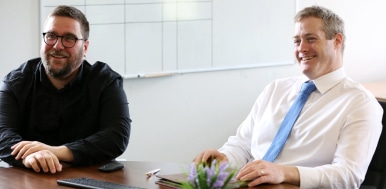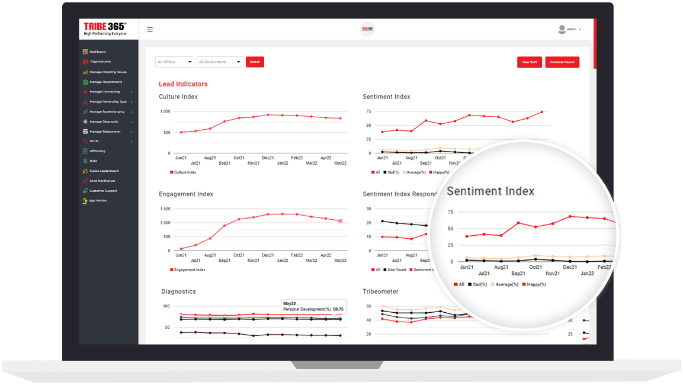Are You Prepared For ‘The Great Resignation’? Sign Up To Our Webinar
Are You Prepared For ‘The Great Resignation’? Sign Up To Our Webinar
Almost a quarter of UK workers are actively planning to change employers in the next few months as part of ‘The Great Resignation’.
So, what is ‘The Great Resignation’? And what’s causing it?
Join workplace culture experts Dan Webber and Oliver Randall on May 25th, as they host a discussion with HR and People professionals on what organisations can do to limit the potential damage of ‘The Great Resignation’.
FREE WEBINAR May 25th, 2022 11 AM – 12 NOON GMT
Ready for ‘The Great Resignation’?
Ways to stop it from severely impacting your organisation
Join workplace culture experts Dan Webber and Oliver Randall on May 25th , as they host a discussion with HR and People professionals on what organisations can do to prevent the potentially severe damage ‘The Great Resignation’ could cause them
Below is some background to this HR phenomenon sending shockwaves through organisations of all shapes and sizes across the Western world.

What’s Causing The Great Resignation?
The Great Resignation has been prompted by a number of factors, including:
The impact of the pandemic on ways of working and changing staff priorities
A glut of new vacancies in a buoyant, candidate-led job market
Plenty in the way of viable remote and work from home opportunities
A desire for better work/life balance
Burnout
Eye-opening Survey Findings
A survey of 6,000 workers by the recruitment firm Randstad UK found that a massive 69% of respondents were feeling confident about moving to a new role in the next few months, with 24% planning a change within three to six months.
Randstad said that, pre-pandemic, it would normally expect up to 11% of workers to move jobs every year.
Implications For Employers
The Great Resignation (which has already hit US employers hard) will have considerable cost implications for employers – as much as £25,000 for each worker.
This has naturally prompted discussions around companies needing to provide their people with better conditions or work cultures, so that they can retain their best staff.
Since the beginning of the pandemic, there’s been an acute focus on questions like ‘Does this company really care about me and my happiness?’.

Impact On Onboarding Processes
Lots of people moving about in the job market because they spot better opportunities to improve their lives elsewhere costs companies in terms of turnover and lost productivity.
It takes six to nine months to onboard someone to be fully effective. Companies that lose a lot of their workforce are going to struggle with this critical factor in the recruitment process.
Employees Shifting Priorities
For some workers, the pandemic precipitated a shift in priorities, encouraging them to pursue a ‘dream job’, or transition to being a stay-at-home parent.
But many others made the decision to leave as a result of the way their employer treated them during the pandemic e.g. burnout and the blurring of lines between work and free time.
Some workers would rather transition to a totally new industry than remain in a job where they feel they’re being under-valued and unheard
Workers who, pre-pandemic, may already have been teetering on the edge of quitting companies with existing poor company culture saw themselves pushed to a breaking point.
That’s because many of these companies with toxic environments doubled-down on decisions that weren’t in their workers’ best interests.
And many of these companies haven’t addressed these cultural issues since ‘getting back to normal’ or the ‘return to the office’.
People Care More Than Ever About Work Environments and Culture
OK, so people have always cared about the environments they work in. But the pandemic increased their willingness to take action because they, somewhat unexpectedly for some, came across a plethora of different opportunities in the booming jobs market for people looking for more caring employers.
Data over the years has always shown that people care most about how companies treat their employees. That can be measured by multiple metrics including wages, benefits and security, opportunities for advancement, job safety and commitment to employee wellbeing.
Interested in learning more about how to tangibly measure culture and staff sentiment? Talk to us about our groundbreaking Tribe365 app
Prioritising What Matters
It shouldn’t need to be said, but people are not machines.
If you’re worried about your family, health, financial insecurity and bills – yes, all the things that come with being human – you’re less likely to be productive because this stuff is going to be playing more on your mind than tasks that an uncaring manager is demanding you deliver.
Workers expect their employers to make moves to address and help alleviate these concerns – and companies that fail to do so in this new climate will suffer.
The majority of people quitting as part of ‘The Great Resignation’ are doing so because of a worsening work-life balance or a toxic workplace culture.

A Lasting Change?
Could The Great Resignation bring about meaningful, long-term change to workplace culture and the way companies treat or invest in their employees?
We believe the answer is yes. Or should be. There’s a real increase in terms of what people are looking for in terms of their expectations of CEOs and companies.
Whether it’s people already in the workforce or those entering it for the first time, how a company treats its people will determine the course of their future.
It’s become compulsory for companies to make serious investments in their employees’ opportunities and overall wellbeing, if for no other reason than it’s simply good for business.
FREE WEBINAR May 25th, 2022 11 AM – 12 NOON GMT
Join Dan Webber, Oliver Randall and a host of other workplace culture professionals for expert insights and lively discussions on what organisations should be doing to prevent The Resignation from impacting them
Ready for ‘The Great Resignation’?
Ways to stop it from severely impacting your organisation

Interested in finding out more?
Book a meeting in with the Tribe team
today on +44 (0) 1325734847 or at
team@tribe365.co

















